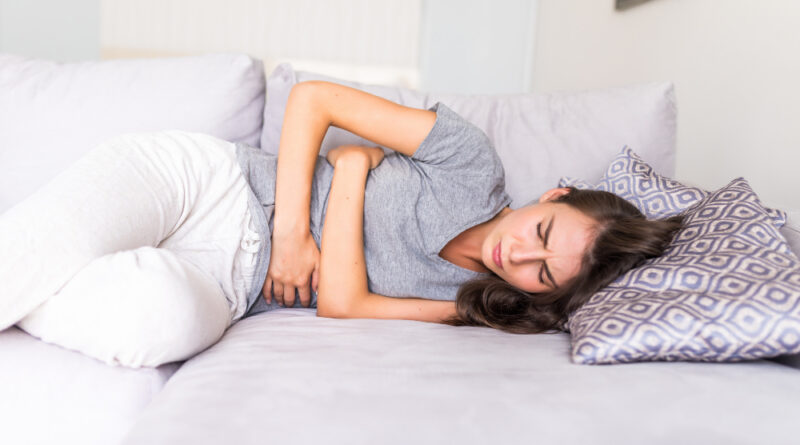Ayurveda Treatment and Panchakarma Therapy for PCOS to Improve Fertility
Originally posted 2023-03-24 06:53:29.
Our goal is to help people with polycystic ovaries get better using specialised Ayurvedic infertility treatments.
What is PCOS or PCOD?
Polycystic ovarian syndrome (PCOS or PCOD) is one of the most common hormonal endocrine disorders in women. It affects up to 20% of women in their reproductive years and can cause either primary or secondary infertility.
Aarthava Kshaya was the name for PCOS in Ayurveda.
PCOD is a condition in which the ovaries have high levels of androgens (male hormones), especially testosterone. This causes high levels of luteinizing hormone (LH) and low levels of follicle-stimulating hormone (FSH), which stop follicles from making mature eggs. This causes periods without ovulation and irregular menstruation.
Polycystic ovary syndrome (PCOS) symptoms tend to come on slowly at first. Changes in hormones that make PCOS worse usually start when a woman is young, after her first period. After gaining weight, signs may be easier to see.
Hirsutism is when there is too much hair growth, usually in a male pattern. The hair grows on the calf muscles, just below the big toe on the hips, the elbows, below the navel, between the breasts, and even in the moustache area. Sometimes, the brows and lips can be heavy, too. Facial hair loss or thinning of the scalp
There are two types of PCOS.
- Symptomatic
- Asymptomatic
Where PCOS may or may not have no signs or symptoms.
You will be Interested on : Best Ayurvedic Sexologist In Koramangala
Reasons PCOS leads to infertility:
It should be noted that not all PCOS/PCOD conditions result in infertility.
PCOS causes infertility because a woman’s hormones behave differently when she has PCOS than when she does not.It changes the way your body works on the inside to make eggs and get ready for pregnancy. There are three ways to look at why women with PCOS can’t get pregnant or why they can’t stay pregnant:
Most of the women who have PCOS do not ovulate naturally.
They don’t come at regular times, so you can’t tell what their monthly patterns will be.
Since their periods don’t come at regular times, their endometrium can’t get ready for when the egg comes out. Because of this, it wouldn’t help with pregnancy.
Keep reading : How to Treat Polycystic Ovarian Disease Through Ayurveda
Symptoms of PCOS:
PCOS symptoms are the most common:
- Periods irregularity: If a woman doesn’t ovulate, her uterine lining doesn’t shed every month. PCOS affects any woman younger than eight years old.
- Severe bleeding: The uterine lining is thicker than usual, which means that the time between periods will be longer than usual.
- Growing hair: About 70% of these women get hair on their faces and bodies, like on their backs, bellies, and breasts. Hirsutism is the formation of too much hair.
- Acne: Because of male hormones, the skin can get thicker than usual and break out in places like the face, chest, and back.
- Overweight: Up to 80% of women with PCOS are a lot heavier than they should be.
- Male-pattern baldness: The skin on the scalp is thin and flakes off.
- Darkening of the skin: Dark patches of skin can happen in body plugs like the nose, the groyne, and under the breasts.
- Headaches: Some women get headaches because of changes in their hormones.
Read on : Female Infertility Treatment In Bangalore
What causes PCOS?
Pathology or Cause of The Disease:
It’s not clear what causes PCOS. Most experts agree that there are many factors at play, including biology.
High number of androgens. Androgens are sometimes called “male hormones,” but all women make small amounts of them. Androgens control how male traits, like male-pattern baldness, develop. When a woman has more androgen than usual, it can stop her ovaries from making an egg (ovulation) every time she has her period. It can also cause extra hair growth and acne, which are both signs of PCOS.
High insulin levels. Insulin is a hormone that regulates how much energy you get from your food. Insulin resistance is common in women with PCOS, especially those who are overweight or obese, eat badly, don’t exercise, or come from a family with a history of diabetes. Insulin tolerance can eventually cause type 2 diabetes.
Keep reading : Female Infertility Treatment In Hyderabad
Ayurvedic Management For PCOS
Changing your lifestyle and taking medicine are the main ways to treat PCOS.
The goals of treatment can be put into four groups:
- Reduction of insulin resistance
- Restoring fertility
- Treatment of hirsutism or acne
- Restoration and prevention of endometrial hyperplasia and endometrial cancer
Please keep in mind that women with PCOS do not always have difficulty getting pregnant. Anovulation, or ovulation that doesn’t work right, is a big reason why. Changes in the level of gonadotropins, hyperandrogenaemia, and hyperinsulinemia are also factors. Like women without PCOS, women with PCOS who ovulate may not be able to have children because of something else, like a blocked tube.
Ayurveda suggests a more complete way to treat PCOS. Personalised therapy helps to get to the root of the problem and bring the body back into balance.
Keep reading : PCOS Ayurveda Treatment in Kochi Kerala
Ayurvedic treatment of PCOS follows the following protocols:
- Ayurvedic body detoxification
- Strengthening and revitalising the reproductive system of females
- The reversal of hormonal imbalance
- Addressing obesity and insulin resistance
Panchakarma is the first step in Ayurvedic treatment for PCOS. The ayurvedic specialist comes up with a custom plan after doing a full evaluation.
Panchakarma fixes the problem at its source by getting rid of toxins from the reproductive system:
Panchakarma for infertility and PCOS
The Ayurvedic therapy called “Panchakarma” is a clear answer to the growing problem of PCOS in the modern world. With panchakarma therapy, the uterus, ovaries, Fallopian tubes, female vagina, and male testis get more power. The hormone equilibrium is preserved by panchakarma treatment. Ayurvedic Panchakarma facilitates pregnancy.
1.Basti (Vasti):
The rectum is used to give an enema of herbal oil or decoction. “Vata” that is out of balance can lead to a number of health problems. Basti removes obstacles from Vata Dosha’s path, which controls the natural “Vata” effect. Different kinds of herbal oils, Ghruta, milk, or decoctions are used to treat people with Basti. Miracles can happen if they are treated right and given the right medicines.
The dose is taken out of the rectum by the Basti treatment. It makes the “Vata” dosha more stable. Apana Vayu is a type of “Vata Dosha” that controls Shukra Dhatu (semen) in men and Aartava (ovum) in women. The reproductive system is controlled by the “Apan Vayu.”
“Sahachar Tail” oil Basti makes it more likely for females to ovulate on regular days. The Basti treatment makes men’s sperm thicker and more plentiful, which improves the number of sperm and their ability to move.
Benefits of Basti
Reduces female infertility (Irregular Menses, Hormone Unbalance, Dysmenorrhea, PCOD, Fallopian Tube Block)
2. Uttarbasti (Vasti):
Uttarbasti (Vasti) seems to be the best way to treat problems with the female reproductive system. Because of how it affects the uterus and ovaries, it works better than oral medications at getting rid of cysts in the ovaries. Also, it helps clean and flush out the Aartava Vaha Srotas, calms the agitated Apana Vayu, and makes the follicles more mature.
3. Virechan:
It gets rid of toxins in the body when “Pitta” is vitiated. The small intestine and other parts of Pitta are used for the washing process. In this case, medicines that make it easier for the intestines to move are improved so that the rectum can be used to get rid of doshas. It’s based on a balance of hormones, like “Vaman Karma.”
4. Vamana:
Cleaning method primarily used to eliminate vitiated ‘Kapha.’This is a drug-induced vomiting process that doesn’t hurt and is mostly done in Vasant Rhitu.
5. Fertility Massage:
The uterus stays healthy when the lower abdomen is massaged in a certain way with both soft and firm pressure. Fertility massage also lowers the pressure in the lower abdomen and brings more blood to the pelvis.
Ayurveda has the best drugs and treatments for PCOS, which is a condition that affects a woman’s ability to have children.
Herbal drugs are very good at keeping hormones in check. Panchakarma is a treatment that works well to clean out the body and get it ready for more therapy or medicine. When the panchkarma protocol is done right, like with uttar basti (vasti), it has been found that follicles split on their own without the need for hormone injections.
After panchakarma, special herbs and methods are used to bring the female reproductive system into balance and help it heal. There is a lot of phytoestrogen in Ayurvedic medicines, which can reduce inflammation and insulin resistance by a lot.
Some ayurvedic herbs or medicines that are useful for handling PCOS include
Ayurvedic medicines have consistently observed success in the reduction of ovarian volume. Herbal medicines like Triphala, Kanchanar, Trikatu, Guggul, Dashamool, etc. are better for treating PCOS. These are helpful for treating PCOS. Many Ayurvedic herbs, like Shatavari and Shatapushpa, also help follicles grow eggs and split on their own.
You will be Interested on : Best Ayurvedic Sexologist In Bangalore
Ayurvedic Diet tips for PCOS
- Ayurvedic diets for PCOS focus on making sure that the hormone Aartava is in good balance in the female reproductive tissue, one of the dhatus.
- People with PCOS should eat organic fruits and vegetables like raisins, pears, and plums, as well as fresh foods like dates, figs, and raisins.
- We suggest berries in season.
- People are also told to stay away from spicy foods, foods that have been fermented, dairy products, and buttermilk (digestive fire).
- Eat Ragi porridge made with Ragi extract (nachini, Eleusine coracana).
Reduce the amount of sugar or sugar substitute. Stop making anything with fake sugar.
PCOS will change a woman’s periods and make it hard for her to get pregnant. High levels of male hormones can also make things like hair growth on the face and body happen too quickly.
Lifestyle changes are the first treatment that doctors give people with PCOS. Sometimes, this works well, depending on your timeframe and schedule. Dieting and doing yoga or aerobic exercises are both good ways to lose weight.
Contact us for expert advice and guidance, and take the first step towards treating your PCOS and living a worry-free life.
To get a free consultation Call or Whatsapp +91 9995202100
Fill up online consultation form https://www.khokardispensary.com/quick-online-consultation/
Related Links : sexologist in malapuram, ayurveda infertility treatment london, ayurveda infertility treatment wolverhampton, sexologist in koorkenchery, ayurveda infertility treatment san francisco, sexologist in ettumanoor, best ayurvedic sexologist in manikonda, ayurveda infertility treatment hyderabad, sexologist in al farwaniyah, gandhinagarfemaleinfertility, ayurveda infertility treatment bradfort, sexologist in al jubail, sexologist in chittur, ayurveda infertility treatment gujarat rajkot, sexologist in edappal, coimbatorefemaleinfertility, sexologist in nizwa, manikondafemaleinfertility, sexologist in nilambur, sexologist in sohar.





